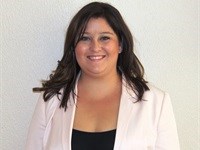Founder and Chairperson of the Rare Disease Society of South Africa (RDSSA), Kelly Du Plessis will travel to Germany next month to represent South Africa at an international conference.

Founder and Chairperson of RDSSA, Kelly Du Plessis
The RDSSA was registered on 14 May 2013 as a non-profit organisation (NPO) that aims to assist patients and families affected by rare conditions.
One of 30 patients' advocates
In less than a year of managing this new NPO, Du Plessis has been selected to attend the 7th European Conference on Rare Diseases and Orphan Products (ECRD), which will take place from 8 to 10 May 2014 in Berlin, Germany. The selection of delegates was made by an ad hoc committee at EURORDIS (The Voice of Rare Disease Patients in Europe) as part of its fellowship programme. Du Plessis is one of only 30 patients' advocates on whom this honour was bestowed.
The ECRD covers research, development of new treatments, healthcare, social care, information, public health and support at European, national and regional levels. It provides a state of the art rare disease environment, as wells as monitors and benchmarks initiatives. Their fellowships aim at empowering patients' advocates by offering a platform on which to network opportunities, access information, and share experiences.
Du Plessis, whose advocacy skills led to her selection, will share her testimony and analysis of South Africa's situation with regard to access to information about rare diseases, as well as the treatment, care and services that are available.
RDSSA - a beacon of hope
In South Africa, where lack of medical infrastructure, research and support is a problem, the RDSSA has become a beacon of hope for families affected by rare disease. Its main objective is to raise awareness among the general public, patients and their respective families, the medical fraternity and decision-makers about rare diseases and their impact on patients' lives. It also provides the resources for medical care and practical aid for individuals suffering from life-threatening diseases.
Although rare disease patients form a minority in society and receive minimal assistance and attention, there are more people affected by rare diseases than there are HIV/AIDS and cancer patients in the world - something of which most people are unaware.















































